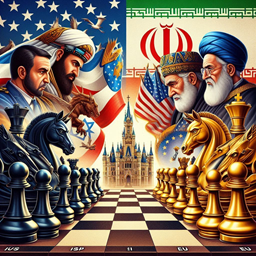By Ron Raskin

Now that the Ayatollah regime in Iran has taken a serious blow, what options does the country have left? There are, of course, two main and obvious paths it could take:
One option is to rebuild from scratch—modernizing, using advanced technology, and strengthening ties with Russia and China. This path would take time, but the regime is known for its patience. The real question is whether the Iranian people are willing to wait and endure more hardship.
The second option is to change course entirely: to stop spreading Islamic fundamentalism around the world and become a more peaceful country. This would mean shifting from constant struggle to global competition, something the Trump administration once hoped for. But realistically, it’s very unlikely that Iran’s current leaders will make such a change.
Unfortunately, there’s also a third—and more dangerous—possibility.
For years, Iran has tried to lead the global spread of Islamic fundamentalism. But as a Shia-majority country, it hasn’t gained much support from the Sunni Muslim world, which makes up the majority of Muslims worldwide. So why would Sunni groups start working with Iran now?
Here’s the twist: while Iran has grown weaker, Sunni fundamentalism is on the rise. Iran might decide to stop trying to lead and instead join forces with a Sunni-led movement—possibly under Turkey’s leadership.
This might actually make sense from Turkey’s perspective. Most Turks in Turkey and Central Asia are Sunni, while many in Iran and Azerbaijan are Shia. Even Iran’s Supreme Leader, Ali Khamenei, is an Azeri Turk. So a united Turkic-Islamist alliance, led by Turkey and joined by Iran, could be acceptable to both sides.
Hopefully, this worst-case scenario won’t happen—and instead, the deep divide between Sunni and Shia Islam will prevent this dangerous path

